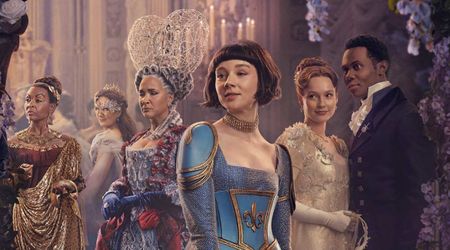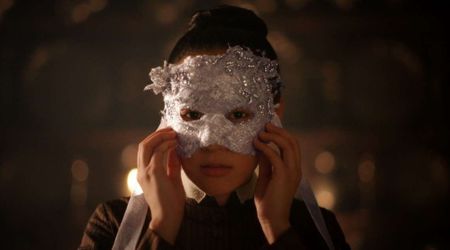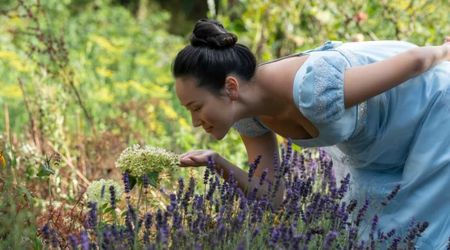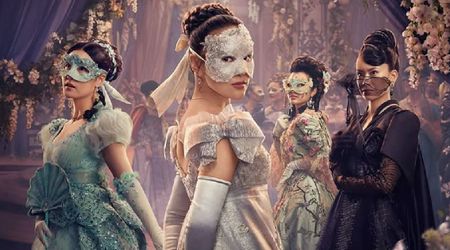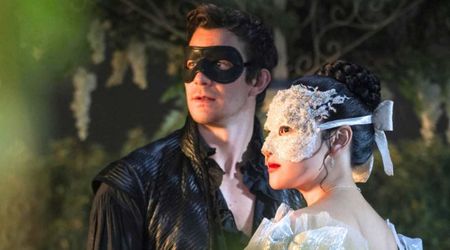'The Society' season 2: The tragic fall of Elle from little miss perfect to being battered and abused is a tale too common

It doesn't exactly do justice to describe 'The Society' as a young adult show - it goes well beyond the frivolities of the genre. The 10-episode series, created by Chris Keyser, follows a group of teenagers, who, after being mysteriously transported to a facsimile of their posh New England town, must now figure out a way to live cooperatively, survive without being killed (a genuinely difficult feat to achieve on 'The Society'), and get back home.
One particular aspect in which the show surpasses its genre is the complexity of its characters. Each of the teenaged characters holds a complex personality that opens up through the 10-hour episodes. Female characters of 'The Society' have more depth and value than what can be gauged by their relevance to the story - from a woman taking complete charge of civilization without any practical knowledge of survival to another dealing with teenage pregnancy all by herself. Such is Elle Tomkins' character. Played by Australian actress Olivia DeJonge, Elle's trajectory is rather, well, tragic.

When we first see her on 'The Society', DeJonge's Elle is distant, lonely, struggling to make friends and feels like she belongs. There is also a scene at the beginning of the show where she dresses up to go see some girls but ends up being rejected.
Actually, Elle wears her rejections, vulnerability, and insecurities with sincerity. This was one aspect of Elle that attracted actress DeJonge. In an interview, she points out that there is a certain relatability in Elle's vulnerability. "I know that feeling of getting dressed up and going somewhere and putting yourself out there, and how scary that is. It affects your body and your mind. That's what I wanted to bring to it. As much as she's depicted as a bit of a loner, she's got a lot of personality. She's bursting at the seams to be somebody, she just needs someone to give her a chance. I guess that's why she was so drawn to Campbell (Eliot, played by Toby Wallace)," she says.
It is from here that her character is exploited in its true sense. Elle and Campbell find each other and think that both of them are loners, which means that they're peas of the same pod. But her relationship with Campbell quickly deteriorates, becoming life-threatening even.
That way, Elle tries hard to slip into her character to survive. There is, without a doubt, a strong will to survive – she is level-headed when she figures out the darkest way possible for her survival. And there is sincerity – when this option goes downhill, she is ready to bear the brunt of her actions rather than go back to an abusive house.
Domestic abuse, in Elle's case, is more emotional than physical. And it is depicted with absolute authenticity. Emotional abuse is equally, if not more, rampant as physical abuse. While it is not to say Campbell doesn't physically abuse her because he does (drowning her in the bathtub, beating her, and perhaps giving her a cigarette burn as well), it is the emotional abuse that reverberated with women across the world. Elle lives in perpetual fear of her partner – perpetual fear for her life, and of losing her sanity, and well-being.
In DeJonge's portrayal of Elle, there is pain, loneliness mixed with a tinge of helplessness, and dejection. Her story is crushing – many young girls and women everywhere, unfortunately, know exactly what she is going through.

